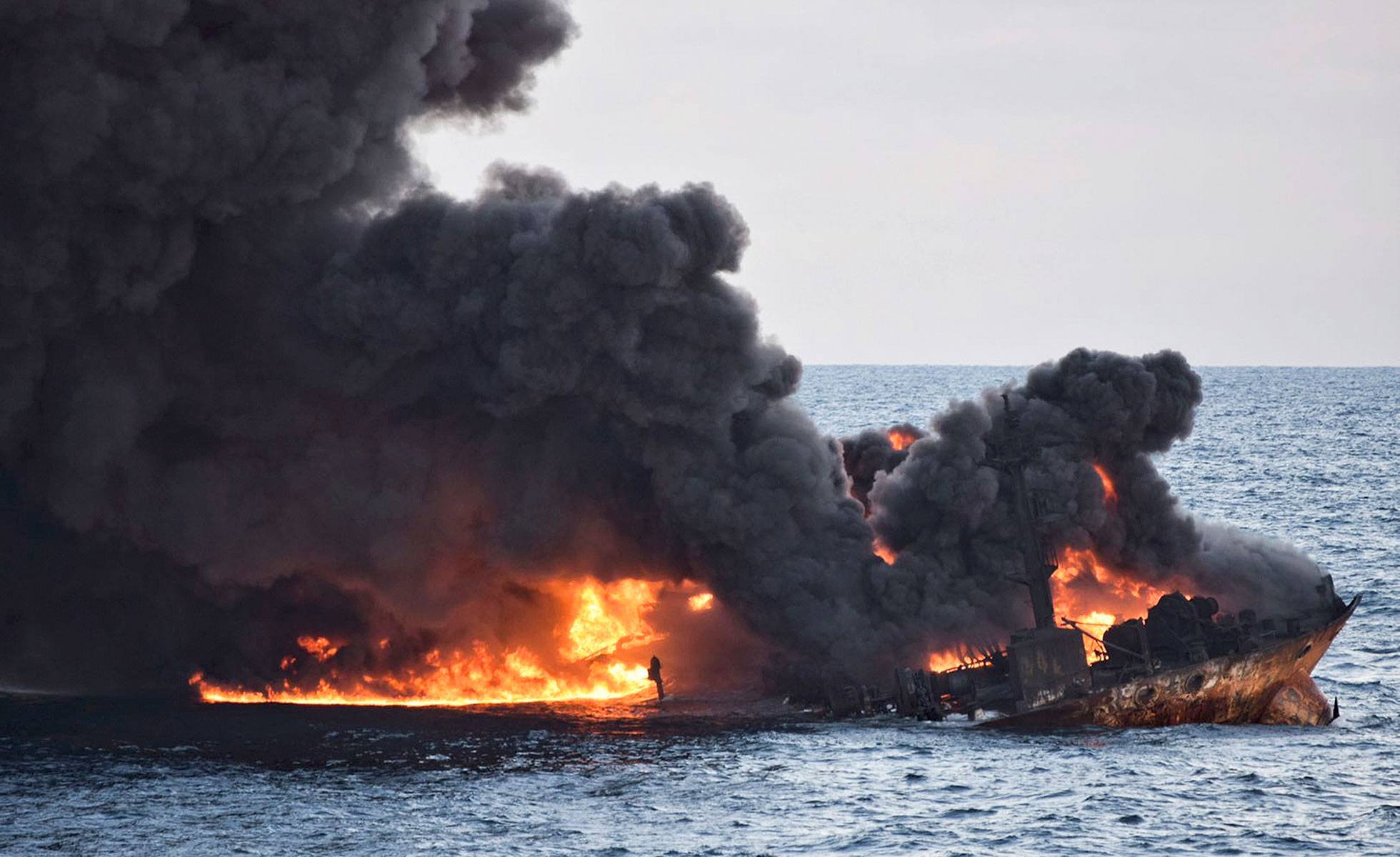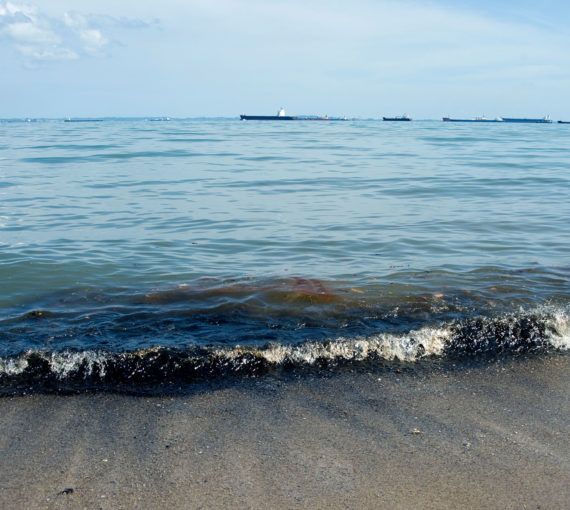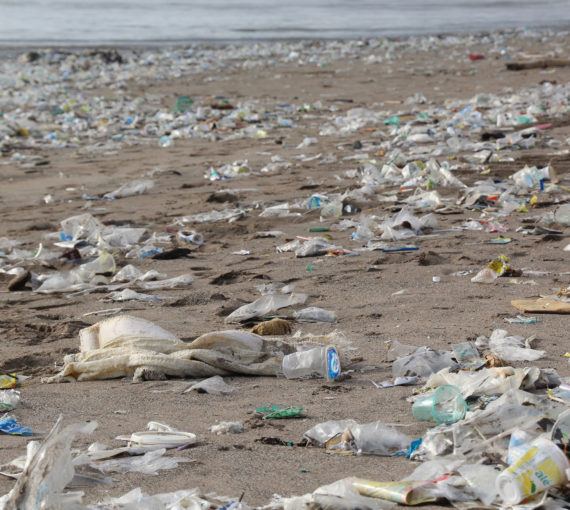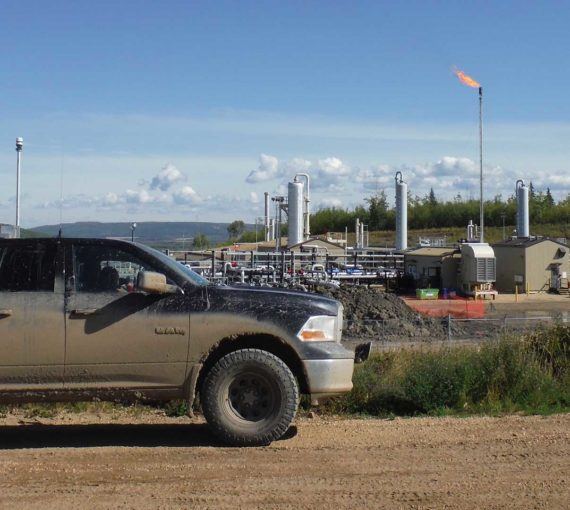
The burning Iranian oil tanker Sanchi is seen partially sunk in the East China Sea off the eastern coast of China. (Photo: Ministry of Transport via AP)
It could have been a scene from a Hollywood disaster movie: billowing black smoke, a growing oil slick 16 kilometres long and the remnants of a half-sunken super oil tanker in the middle of one of the world’s busiest waterways.
But this was real life.
Less than a week after much of the world rang in the New Year, Iranian-registered supertanker Sanchi — carrying a million barrels (136,000 tonnes) of highly toxic condensate oil — collided with a grain freighter in the East China Sea, a fertile fishing ground, busy shipping route and one of the most politically sensitive regions in the world. The crash took place about 419 kilometres off the coast of Shanghai, global financial hub and China’s biggest city, with a population of 24 million. As of January 16, the charred supertanker’s remains had landed in what is known as Japan’s Exclusive Economic Zone.
Sanchi is owned by National Iranian Tanker Co. At the time of the accident, it was carrying oil condensate to South Korea. The Hong Kong–registered freighter that collided with Sanchi — CF Crystal — was carrying grains from the U.S. to China. All 21 of its crew members made it to shore.
Sanchi burned for more than a week after the crash. It experienced numerous explosions before finally sinking on January 14. Early rescue efforts were volatile due to stormy weather, toxic fumes and burning flames.
Much has yet to be determined regarding the disaster’s environmental consequences. But the loss of lives — all 32 members of the Sanchi crew, which included two Bangladeshi and 30 Iranian nationals — has become the unbearable reality. After three bodies were retrieved, Iranian officials announced on January 15 that the rest of the crew were presumed dead. The grieving families deserve our compassion, and the Chinese, South Korean, Japanese, Iranian and American rescue crews who battled waves and flames to do what they could deserve our gratitude. As is often the case with environmental disasters, human suffering and loss of lives are at the forefront.
What can those of us thousands of kilometres from the disaster zone do? (Vancouver is 8,835 kilometres from the East China Sea.)
For one, we can learn more about our global neighbours. The East China Sea is one of the world’s most economically and politically sensitive waters. Its 1.2 million square kilometres of water surrounds Asian economic powerhouses like Japan, South Korea, China and Taiwan. This is the same water that saw tensions rise between China and Japan over the contested Senkaku Diaoyu Islands.
“The explosion and sinking of the Sanchi occurred in an important spawning ground for several species of fish and on a migratory pathway of many marine mammals, including three species of whale.”
Greenpeace
Environmentally, according to Greenpeace, “the explosion and sinking of the Sanchi occurred in an important spawning ground for several species of fish and on a migratory pathway of many marine mammals, including three species of whale.”
Oil spill expert Rick Steiner — a U.S. marine scientist based in Anchorage, Alaska — told Reuters that despite ongoing problems with pollution, the East China Sea is known for its rich marine ecosystem of whales, porpoises, seabirds and fish: “As with all major oil spills, time is of the essence. This is particularly so with condensate spills, as the substance is so toxic and volatile.”
In addition to the million barrels of condensate oil, Steiner is also concerned about the 1,000 tonnes of bunker oil Sanchi was carrying, as bunker fuel is not only the dirtiest of oils, it is extremely toxic when spilled.
Fu Pengcheng is a professor of life sciences and biotechnology at the Beijing University of Chemical Technology. He told CNN it will take decades — even centuries — for the contaminated area to completely recover: “The most important thing we need to do is to send a team of experts to evaluate the situation and try to make some appropriate plans to minimize the damage.”
This oil tanker disaster will have an impact on the East China Sea, its neighbouring nations and global consumers of products from the region, Canadians included.
As a citizen of our global village, I will be watching closely. What happened in the East China Sea could happen to us, especially as our governments continue to approve fossil fuel projects that increase tanker traffic in our coastal waters.
Whatever impact this disaster has on people, ecosystems and wildlife in Asia is worth learning from, so we don’t suffer similar consequences in Canada. Perhaps that’s the best way to honour the tragedy and its countless victims.


